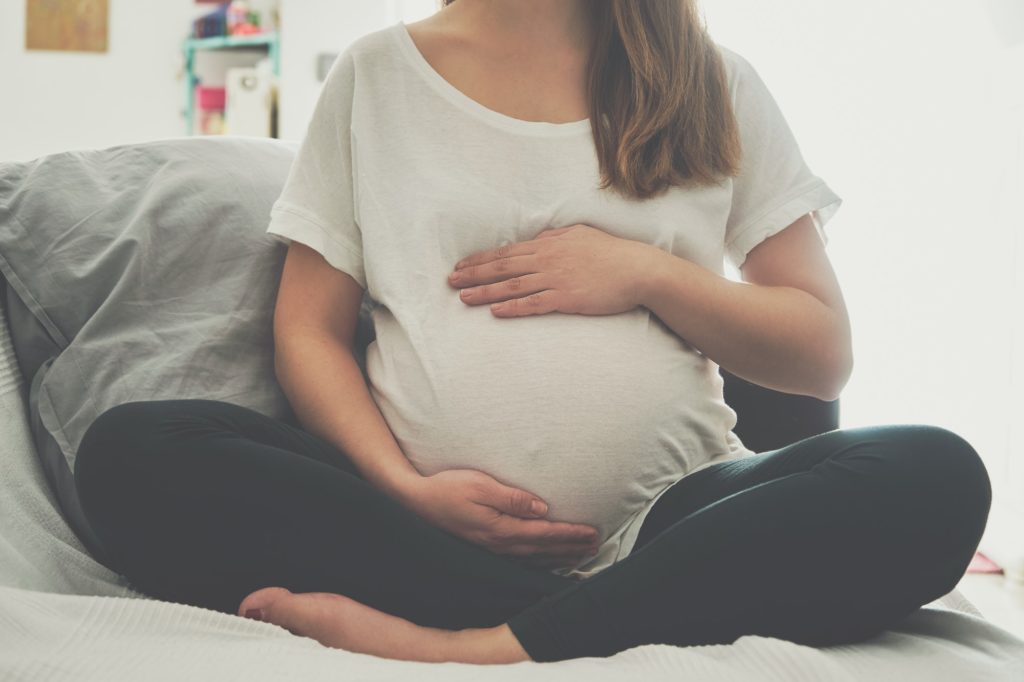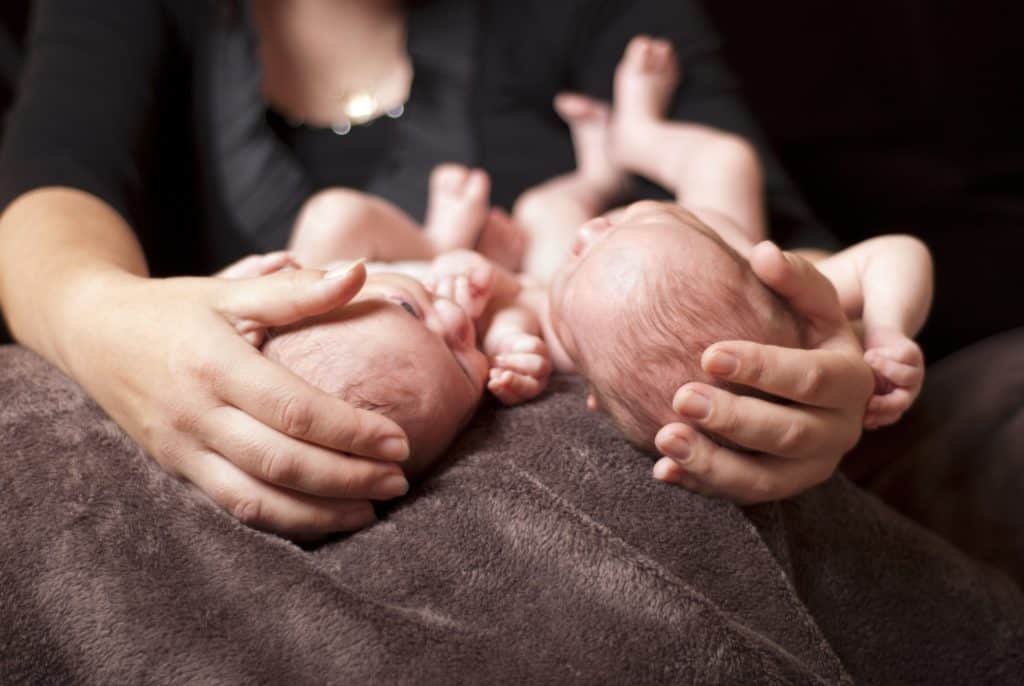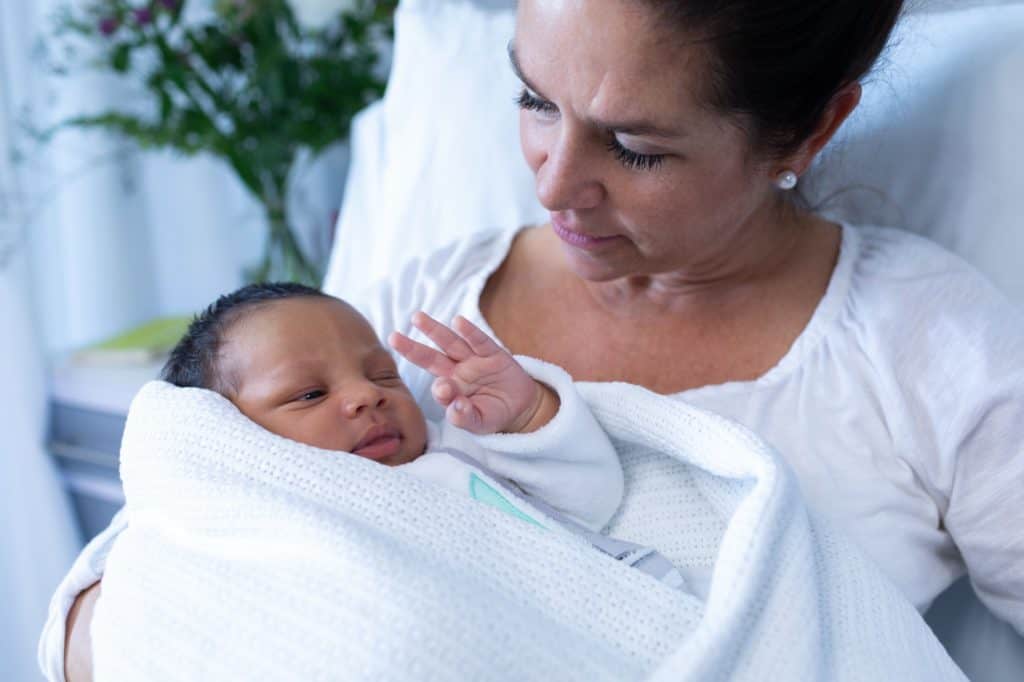My Cart(0)
What is a Geriatric Pregnancy?

Historically, women who become pregnant over the age of 35 were considered to have a “geriatric pregnancy.” This term has become outdated in recent years, due to the increase in education, technology, and pregnancy knowledge. Still, women are often concerned when it comes to pregnancy as you age. In this article, we want to break down some misconceptions and ease your worries a little about “geriatric pregnancies.”

What is a Geriatric Pregnancy?
According to Healthline, “In the medical world, a geriatric pregnancy is one that occurs anytime a woman is over the age of 35.” This phrase has fallen out of popularity among medical professionals, and a new one has taken its place. Today, the term “geriatric pregnancy” has become “advanced maternal age.”
Studies have demonstrated that more women than ever before are having their first child between the ages of 35 and 39. And according to a study by the NCHS, first-time pregnancies in women over 40 have actually doubled in the last 40 years. This shift towards later pregnancies is likely due to the shift in social beliefs within the last 40 years.

In recent years it has become more socially acceptable to wait to have children until you feel you are financially stable. In addition, many women choose to focus on their careers and wait to have children. The recent increase in technological abilities and knowledge of baby development has also helped women have safe and healthy pregnancies in their later years.
Why is it considered a geriatric pregnancy?
Fun fact about fertility, you are born with your entire lifetime supply of eggs. According to the Rogel Cancer Center, “Females are not capable of making new eggs, and in fact, there is a continuous decline in the total number of eggs each month.” It is because of this reason that women over the age of 35 have increased difficulty conceiving.
According to a study published in Hum Reprod, women between the ages of 19-26 are at their highest fertility levels. Between the ages of 27 and 34 the likelihood of conceiving drops to 40%. Between the ages of 35-39 it drops to 30%. And by the time you reach 40-45 your fertility decreases by up to 95%.

Don’t worry though, many healthcare professionals still believe that a healthy and safe pregnancy is possible. According to an article in Parents, “A woman who maintains a healthy weight, takes a prenatal vitamin with folic acid, manages medical conditions, doesn’t smoke, and keeps vaccinations up to date, has a better chance of conceiving a healthy baby, and having a healthy pregnancy.”
Risks with a Geriatric Pregnancy
As with any pregnancy, there are risks involved with having a child after age 35. This includes an increased risk of:
-
Pre-eclampsia
-
Gestational diabetes
-
Cesearean Section
-
Labor Complications
-
Loss of Pregnancy
-
Premature birth
-
Low birth weight
-
chromosomal defects in the baby (particularly Down Syndrome)
-
Having multiples (twins)

How to Combat the Risks
In order to ensure you have a safe and healthy pregnancy it is essential that you speak with your doctor. Your doctor will be able to evaluate your individual condition and help you form a plan for a safe pregnancy. In general there are a few lifestyle changes that can help ensure you have a healthy pregnancy – no matter your age.
-
Preconception/Fertility Appointment: This appointment helps you and your doctor evaluate and understand the risks involved in your pregnancy. In addition, you can formulate a plan to increase your risks of pregnancy, and other options in case those don’t work.
-
Prenatal Care: Be sure to go to any and all doctor’s appointments that are scheduled. These frequent check-ups can help to catch any problems that might occur throughout your pregnancy. In addition, try to regularly take a prenatal vitamin to make sure your baby is getting the proper nutrition it needs.
-
Eat Healthy: A well-rounded diet is essential during pregnancy. This ensures that you and your baby are getting all the necessary nutrients you need.
-
Stay Active: Regular physical activity helps your body stay healthy and improves your overall health.
-
No Alcohol, Tobacco, or Drugs: Avoid all risky substances during your pregnancy. And talk to your doctor about any medications you are currently taking.

Recovering from an Advanced Maternal Age Pregnancy
Postpartum recovery can be a long and hard journey for any woman. Due to many of the increased risk factors associated with a geriatric pregnancy, recovery can be even more difficult. Fully recovering from pregnancy and childbirth can take months, and this is on top of caring for a newborn. It can be frustrating to feel as though you are not recovering as fast as you want, but give your body a chance to rest. It just spent 40 weeks creating a new life, it will take more than a few days to recover. Even if all you can do is sleep, eat, and take care of your baby that is enough.
Later when you begin to feel better it can be tempting to try and workout and shed the baby weight. Be patient. You may feel prepared, but sometimes it is not the best decision to jump right back in. Focus on eating healthy and drinking lots of water. Diet is just as important as exercise, and diet won’t accidentally hurt you in the process.

For a faster recovery after a geriatric pregnancy, consider using a postpartum girdle. They are designed to support your abdomen after giving birth so that you can get back to feeling and looking your best. Bellefit postpartum girdles are perfect for any mom who wants to speed up her recovery time. For whatever pregnancy, labor, or postpartum journey you are on, Bellefit’s postpartum girdles are here to support you.
unsubscribe at any time without costs.









